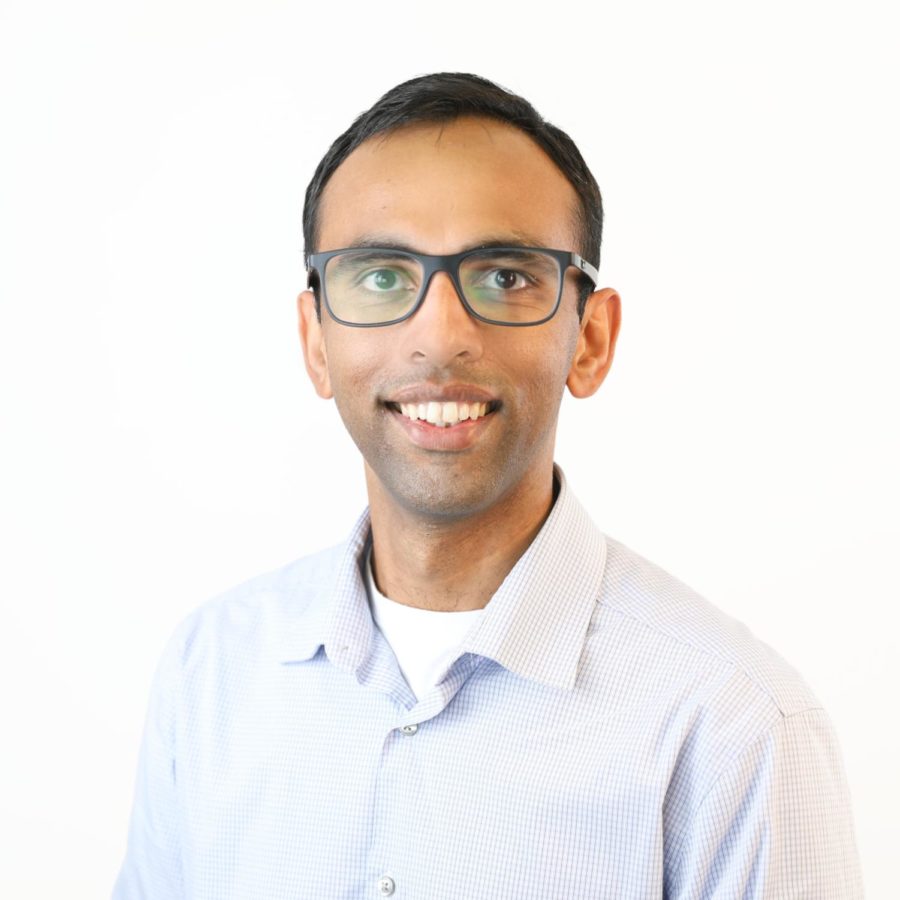Professor Spotlight: Rahul Renu
Photo by: CONTRIBUTED PHOTO
Dr. Rahul Renu, associate professor of mechanical engineering at FMU.
Associate professor of mechanical engineering and coordinator of the mechanical engineering program, Rahul Renu, is dedicated to becoming the professor he needed as an undergraduate student.
Renu joined the FMU community in 2016 after graduating from Clemson University with a Ph.D. in mechanical engineering. Since 2013, he has authored 28 publications and performed research projects with companies such as BMW, Bicycle Corporation of America, GE Healthcare and Michelin.
Though Renu has established quite a professional background in mechanical engineering, he had not always planned on entering the field.
“Once I finished high school, I really wanted to become a physicist,” Renu said. “That summer, between high school and college, I read Halliday and Resnick, which was this massive physics textbook. I read it for fun, and I enjoyed it.”
One day during a visit, a family friend mentioned that engineering is a form of applied physics. This set Renu on a path to eventually pursue a bachelor’s degree in mechanical engineering from Sir M Visvesvaraya Institute of Technology in Bangalore, India.
“I did it, and I loved it because it really is the application of physics,” Renu said. “I just loved it and stuck with it.”
Renu decided to pursue postgraduate studies in South Carolina shortly after overhearing a conversation while studying for his GRE.
“There was this guy who was sitting in front of me, and last student break was talking about this school in South Carolina that’s got a huge connection with BMW,” Renu said. “So, I tapped on his shoulder and said, ‘Uh, you mind telling me that name?’ So I wrote it down in the back of my book: ‘Clemson.’ I still have that book.”
For Renu, the decision to move halfway across the world seemed simple at first, but it came with its fair share of adapting.
“I’d lived with my parents up until that point, which is normal in India,” Renu said. “I was twenty-something years old, and I packed two bags and a backpack and said, ‘All right, see you guys.’ It was daunting.”
One of the main adjustments Renu noticed after his move was the difference between teaching styles in the U.S. and India. While pursuing his undergraduate degree, Renu said the educational atmosphere discouraged questions from students in the classroom. Once becoming a graduate student, Renu said adopting this mentality made progressing in his classes even more challenging.
“I would struggle day in and day out to answer the question myself, and I had terrible grades because of it,” Renu said. “Then I realized that ‘Yeah, my faculty wants to help,’ and so, I started going to them, and I truly learned a lot. That’s something I try to incorporate into my classroom now: keeping my door open and having students come over and ask questions. It’s tough if you don’t have that.”
While Renu enjoys his time inside the classroom, he also likes to spend time outside, jogging trails around the Florence area. On average, Renu said he tries to run 1,000 miles a year. Over time, Renu met a few colleagues along the way that also enjoy the hobby.
“Me and a bunch of friends, on Saturdays, we just go out and run for a couple of hours,” Renu said. “Dr. Engelhardt runs, Dr. David White in the political science department runs, Dan Schofield in the math department runs… Thomas Schnibben runs too. He runs super fast. I cannot keep up.”
Also outside of the classroom, Renu is working on research involving new training methods for potential employees.
“I’m studying how people learn about a product from a website and whether that website helps them be better assemblers of a product,” Renu said. “So, if I put you in a bicycle manufacturing facility and you’ve never seen a bike before, and I said ‘Go grab the pedal,’ you’d go, ‘Grab the what?’ But if I give you a website and it helps you learn the different components, and now you know what a pedal looks like, at least you know where to get it.”
According to Renu, the eventual goal of this research is to provide manufacturing job applicants a way of studying the components before they may encounter them, giving them a leg up in the vetting process. Renu also plans to undertake another research project involving how curiosity relates to creativity and if or how to stimulate creativity based on the type of curiosity a person exhibits.
“It’s two very different forms of research, but I get to do whatever I like to study,” Renu said. “Research is a part of my job, and it’s great. I get to sit and think about these things.”
Overall, Renu said he is very pleased with his time at FMU and looks forward to even more great years doing what he loves.
“They’d have to drag me out of here if they ever want me gone,” Renu said. “I love my students. I love teaching them. They make me proud every day, and when they walk across the stage, I might be selfish for this, but it’s the best feeling ever for me because it’s like, ‘I saw that kid coming out of high school, and now they’re walking across the stage.’”
